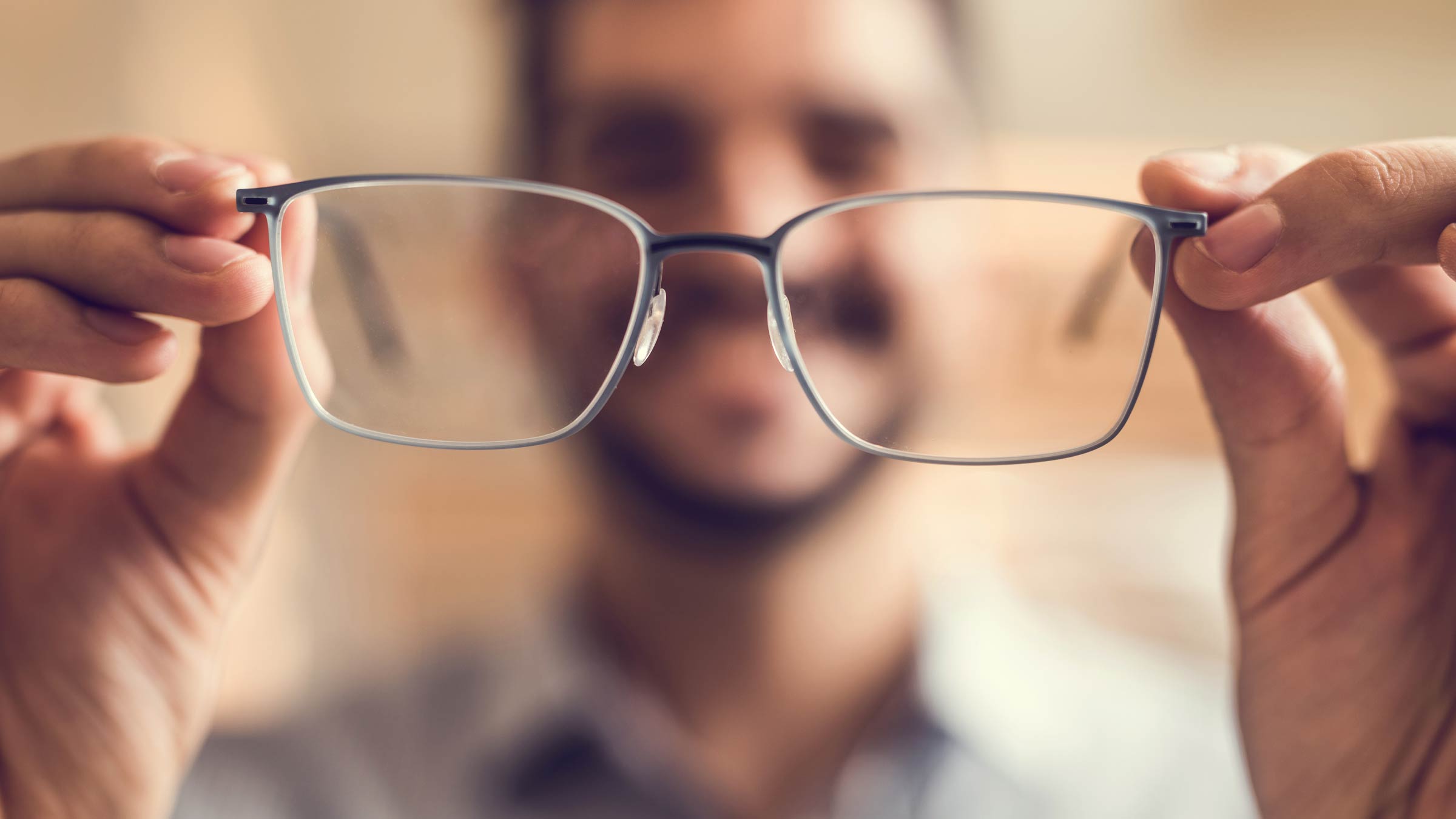
If you’re new to glasses or contacts, it's common to find yourself worried about their potential risks. Let’s help ease your mind about the decision.
Are glasses or contacts best for you?
Because the world has used eyeglasses for centuries and contact lenses for less than 100 years, physical frames have the reputation of being safer than contacts. That is the general truth, as contact lenses run a higher risk of eye infection due to the lens being on your eye for long stretches of time.
However, while definitively safer than contacts, eyeglasses still present some possible drawbacks, especially if they are not well suited to your needs. For example, glasses…
- need to be adjusted to fit properly and can get out of adjustment
- slip down the nose
- can become foggy when coming indoors from the cold
- will get wet in the rain
- may limit certain physical or athletic activities
- can break
- you might prefer your look without glasses (but maybe glasses add to your appearance!)
Patients using stronger lenses or starting their first prescription often experience differences at first in their depth perception and peripheral vision. These changes are temporary and expected. Adaptation to a new glasses prescription may take up to about two weeks. Advise your eyecare provider if your problems go on longer than that.
Will glasses distort my peripheral vision?
Glasses have optical effects that differ from that of contact lenses. The difference is due to the distance that your glasses sit away from your eye, compared to how contacts cover the entire pupil.
It’s common for glasses wearers receiving a new prescription to experience partial distortion of their peripheral vision in the first few days of using them. Whether it’s your first pair or a change to your current prescription, this type of minor distortion is normal for someone using a stronger lens than before. Glasses do not change your eyes. Adapting to a new prescription is just your visual system adapting to the new optics.
Are contact lenses right for me?
For correcting your vision, contact lenses offer several advantages but may also have disadvantages for you compared to using eyeglasses.
Advantages of contacts:
- Natural feel and appearance
- Allows for more physical activity
- No temporary distortion of peripheral vision, since the lens covers all of your pupil
Depending on your lifestyle and needs, contacts may be the best option for you. However, contacts do have risks associated with them.
Disadvantages of contacts:
- Greater potential for infection
- Need for specific care such as disinfection or frequent replacement
- Dry eyes toward the end of the day
Because contacts are a plastic material resting on your eye and coated with a layer of your tears, it’s important to know that your tears are not pure water. Tears include mucus and many other biomaterials that make the lens comfortable on the eye but that may also feed bacteria. If not properly disinfected or replaced according to your prescribed schedule, foreign bacteria may contaminate your contact lenses and that can lead to irritation, redness, or possible infection if not handled properly. Lenses should not be worn if the eye is red, irritated, or your vision is not clear. Notify your eyecare provider if any of these problems persist. Every contact lens wearer should have a current pair of glasses to use as a backup just in case.
That’s why proper care is so important. For example, don’t use tap water to rinse your contacts, as it can lead to organisms such as acanthamoeba entering your eye.
It’s crucial to be consistent and stick to your prescribed routine for care with as little variation as possible, using the cleaning solution meant for your contacts. Do not sleep with your contact lenses in unless overnight lens wear was prescribed by your eyecare provider. Disinfect or replace your contact lenses if you wore them while swimming.
The decision to use glasses versus contact lenses as your primary choice for vision correction is a personal one, and a choice entirely dependent on your lifestyle, goals and visual needs. The choice may even be both, depending on these factors. Your eyecare provider can help you decide what the best choices are for you.

Great vision starts here
Ohio State's optometry clinics provide world-class eye care for your entire family.
Schedule an appointment




